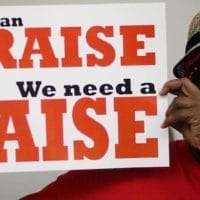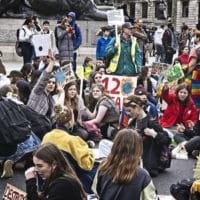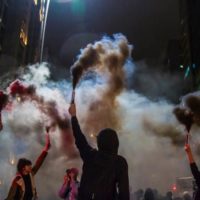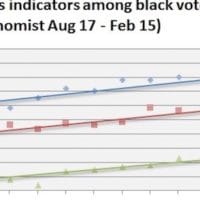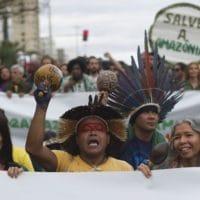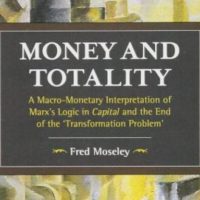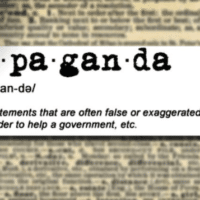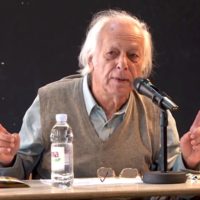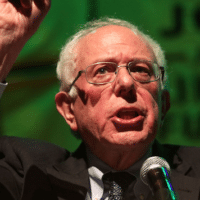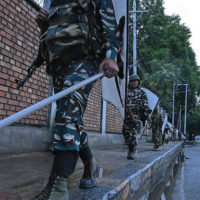-
Is Warren talented enough to betray the people as masterfully as Obama?
Elizabeth Warren is seen as a counter Bernie Sanders, but she will melt (like Joe Biden and Kamala Harris) if she stops raising Democrats’ expectations to bust corporate power.
-
A month ahead of Global Climate Strike, thousands pledge to attend rallies across planet to ‘turn up the political heat’ and demand action
“Time is running out. This decade is our last chance to stop the destruction of our people and our planet… This is why we strike.”
-
Hungering for the language of class war
Dark skies persist over coastal Brazil, where the country’s major population centres are to be found. This year, there have been 40,341 fires in the Amazon, the highest since 2010.
-
The quiet death of the “white Bernie bro” attack
A majority of Sanders supporters are non-white, in contrast to all the other top tier candidates, including Kamala Harris.
-
Brazil’s Bolsonaro causes global outrage over Amazon fires
The far-right populist leader initially dismissed the hundreds of blazes and then questioned whether activist groups might have started the fires in an effort to damage the credibility of his government, which has called for looser environmental regulations in the world’s largest rainforest to spur development.
-
A rate cut that failed to please
On 31 July, the United States Federal Reserve System (U.S. Fed) announced its decision to cut its benchmark short-term interest rate by one quarter of a percentage point to a target range between 2% and 2.25%. It also announced that it would put an end to its policy of selling chunks of its holdings of securities, so as to unwind its bloated balance sheet.
-
German unions are waking up to the climate disaster
The call to stop the production of coal and cars often sounds like a threat to jobs. But German trade unions have realized that the green transition needs to happen—and they’re fighting to make sure it’s bosses, not workers, who pay for climate justice.
-
The next European country as a strategic target of the far-right
Nationalism has always been, to some degree, a feature across Europe’s political spectrum, but in recent years, fostered by the likes of Donald Trump and funded by American religious ‘conservatives’ there has been an explosion in voter support for right-wing and populist parties.
-
What the New Deal can teach us about winning a Green New Deal: Part III—the First New Deal
If we hope to win a Green New Deal we will have to build a movement that is not only powerful enough to push the federal government to take on new responsibilities with new capacities, but also has the political maturity required to appreciate the contested nature of state policy and the vision necessary to sustain its forward march.
-
The systemic crisis of world capitalism
THE hallmark of a systemic, as distinct from a cyclical or sporadic, crisis of capitalism is that every effort to resolve the crisis within the broad confines of the system, defined in terms of its prevailing class configuration, only worsens the crisis.
-
Review of Money and Totality by Fred Moseley
Today, as the global economy flounders from crisis to crisis, Marx’s analysis of capitalism is the essential basis for a correct understanding of what is going on. Moseley’s book reaffirms key elements of this analysis.
-
Syria: A new low in nasty propaganda
It may be a new low in propaganda. National Public Radio (NPR) used the news that Syrian First Lady Asma Assad had overcome breast cancer to mock her and continue the information war against Syria. They interviewed a Human Rights Watch staffer named Lama Fakih who is an American from Michigan now based in Beirut.
-
Remembering Samir Amin: a Marxist of the South
With the passing of the great anti-imperialist and Marxist intellectual Samir Amin on August 12 of last year, the international communist movement lost a giant.
-
Bernie Sander’s climate plan is more radical than his opponents’ – and more likely to succeed
IF YOU TRIED to design a program with the aim of offending the top brass of the world’s most powerful corporations and the politicians whose careers they bankroll, you’d get something like what Bernie Sanders unveiled today in his $16.3 trillion Green New Deal platform.
-
Prabir Purkayastha on How Big Data’s Threat to Elections and Democracy Is Quickly Becoming a Global Problem
The cost of the 2016 U.S. elections was $6.5 billion if we combine the presidential and congressional elections. The Indian Parliamentary election of 2019 outspent the 2016 U.S. 2016 election, costing about $8.6 billion.
-
Blacks don’t blame immigrants for the boss’s crimes
Large proportions of African Americans registered strong opposition to building a wall on the southern border, keeping undocumented people in limbo, and mass deportations.
-
Top 1% up $21 Trillion. Bottom 50% down $900 Billion.
The insights of this new data series are many, but for this post here I want to highlight a single eye-popping statistic. Between 1989 and 2018, the top 1 percent increased its total net worth by $21 trillion. The bottom 50 percent actually saw its net worth decrease by $900 billion over the same period.
-
Kashmir on the edge of the abyss
Tariq Ali on the situation in Kashmir.
-
Oil lobbyist touts success in effort to criminalize pipeline protests, leaked recording shows
In an audio recording obtained by The Intercept, the group concedes that it has been playing a role behind the scenes in crafting laws recently passed in states across the country to criminalize oil and gas pipeline protests, in response to protests over the Dakota Access pipeline.
-
Seattle and the socialist surge in the U.S.
Seattle’s Socialist City Councilmember, Kshama Sawant, is in the midst of a major fight for re-election. U.S. elections are long and expensive compared to most of the world. Seattle city elections are in two parts: a primary that runs through August 6 and then a run-off between the top two candidates decided on November 5.

